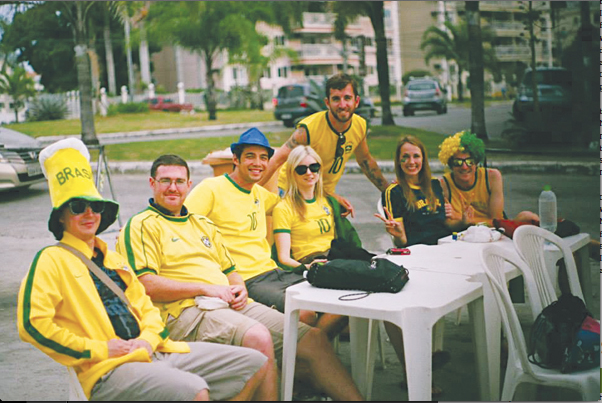The relationship between Canada and soccer is long and complicated
Photo by Marissa Rose UtzFor anyone who follows soccer, specifically international soccer, the World Cup hosted by South Africa in 2010 was a relatively dull event barely covered by broadcasters in North America. In a way, the experience played into the stereotype about North American contempt for the beautiful game. The streets were quiet, there was minimal news coverage, and most people generally seemed indifferent to international soccer’s grandest stage.
Perhaps the only time there was a sense of public soccer appreciation was after Spain had won the final and people flooded the streets with their country’s flag draped on their backs and car hoods.
There was a similar reaction in 2006 in the predominantly Italian-Canadian community of Toronto where I spent my high school years, when the Italian national team beat France on penalties. But looking around and seeing an utter lack of enthusiasm, I just couldn’t believe this sport had ever really been popular or would ever catch on in Canada.
Fast forward to 2014, and the environment has completely changed. The streets are awash with advertising and genuine fervor for the 2014 World Cup in Brazil. In a way, it is a romantic event with the special relationship Brazil has with football, but this alone could not explain the incredible boom in interest for this specific World Cup. Many were intrigued by how South Africa would cope under the global spotlight with all its social issues and lack of infrastructure. Brazil bore a similar tale this year, only one crystallized with dollops of soccer mysticism.
Still, this summer I felt the magic of the World Cup everywhere I went. The same broadcasters of 2010 were now excited for the game coverage, and viewers could watch more matches and other content than ever before.
This could be explained by the recent NBC purchase of the broadcasting rights for the Barclays Premier League for a reported $250 million for three years. These kinds of figures are not anomalies anymore when it comes to soccer coverage as worldwide appeal for access to viewing content increases. Soccer is rapidly spreading into the North American public sphere. News coverage heralds the growing popularity of the sport in the United States, but the same can be said here in Canada.
Of course, hockey will always be Canada’s number one sport. Hockey passion in this country is simply unrivalled by many other things in life, let alone other sports. But it’s refreshing to see Canada join the global community in watching this quadrennial soccer spectacle. The cultural diversity of Canada’s population only enriches the experience of the tournament as people proudly wear the colours of their countries of origin or chosen teams.
There are many clichés used to describe the World Cup, much like those used at events like the World Series, the Stanley Cup, and the Super Bowl. I like these clichés. The concept of togetherness, friendly national pride, and rivalry is something to strive for, and this year Canada more than lived up to the hype.





